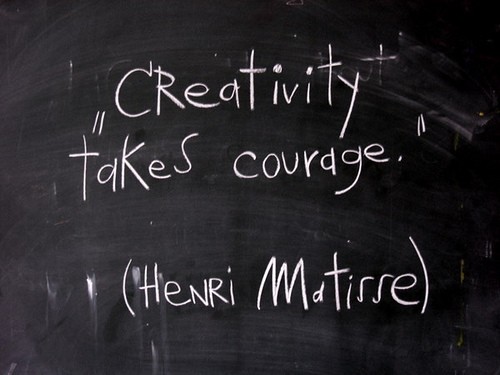A very important question was posed in response to how-matters.org’s recent guest post, “Participation: Reality or the Promised Land? A View from South Sudan, which is “What can development professionals who believe in and practice participatory processes do to promote it?”
It’s a tough question to answer, especially for people on the “inside” of the system, because this often means challenging the very power structures that issue their paychecks. There are too many instances in the field and at headquarters to recount here when I thought, “this is messed up.” But did I raise my voice, suggest a different way, stick my neck out for participation?
Like many development practitioners, I can honestly say sometimes, yes and sometimes, no. We choose our battles, sometimes clumsily.
Then I remembered something that I read long back from the Community Development Resource Centre in Cape Town that has always stuck with me and inspired me, in terms of orienting myself towards positive change within the development industry:
“Can you begin to imagine yourself in an organisation that ran on the principles of creativity?
“Imagine using them to shape the organisation you are currently part of. Can you imagine an organisation welcoming discord because of the harmony it brings? Can you imagine an organisation that encourages still, quiet spaces and invites you to stand back from the endless doing? Can you imagine an organisation to which you would risk bringing your whole self? An organisation in which you could be fully present? Can you imagine an organisation that expects you to work with heartfelt intention and the ability to let go? Can you imagine all of this held together in a more rhythmic, less rigid form? If you can, if you are in any way inspired, we would like to say “hamba kakuhle” [go well] as you continue on this journey.”
When discouraged over the years by inhibiting hierarchical structures or an unhealthy obsession with results or a blatant disregard or disinterest in local priorities, I often turned to this passage from CDRA to help me orient myself again towards possibility.
In thinking about local organizations and their role in development, the other day I wrote down this set of possibilities,
“What if in the hearts and minds of aid workers, donors and philanthropists, local organizations could become respected, envied, even revered? What if, when a problem presented itself, people’s next thought was, “Let’s see what the local groups have to say?” What if when money were on the table, people thought, “How can we get some of this directly into the hands of grassroots organizations already working on the ground? What if we re-oriented capacity building approaches for local groups to be rooted in what they most require from us – allies, nurturance, respect, celebration, collaboration, and engagement?”
I’m not sure how to get there. But what I do know is that as development practitioners who care about ownership, we all need to create more “what if” moments for ourselves.
And that is sometimes the most important battle we fight.
***
Related Posts


I think you’re saying an important thing without saying it directly, which is to act with integrity. Those irritating feelings and frustrating compromises tell us something — they tell us we are out of sync with our own principles. Acting with integrity is a way to align what we do with what we believe, and it FEELS right. Actually, this reminds me of a profound question a consulting client in the US once asked me. She asked, “How can I get staff to trust me?” The answer wasn’t what she expected. I said, “Be trustworthy.” Of course it’s not that easy, when people have been duped and cheated and exploited for a long time, you have to be trustworthy over and over and over again — even when they don’t believe you and aren’t grateful. You have to be trustworthy because it’s who YOU are, not because it “gets” you something from beneficiaries. Anyway, that’s my experience.
Beautiful post! I don’t think working in an organisation that runs on the ‘principles of creativity’ is necessarily easy, though I suspect it makes life and work MEANINGFUL and that’s what many of us want, don’t we?
To How Matters “hamba kakuhle”….
Jennifer – I like the “What if?” question. I also like the idea of each person/practitioner having his/her own short list of reminders to look at periodically. It’s so easy to forget our primary goals (listen, encourage participation, etc…) in our daily hectic lives.
Thanks for the great questions. I also really appreciate Nora’s comment that this is all about acting with integrity.
I aggregate information to support the innovation, creativity and actions of others who care about the same problems I’m trying to solve. One section of my library focuses just on ideas for innovation, collaboration, knowledge management, etc. – http://tinyurl.com/TMC-innovation-links
This information can be used by problem solvers in any part of the world. Look forward to connecting with you.
Thanks for this Jennifer. This line really resonated with me:
Can you imagine an organisation that encourages still, quiet spaces and invites you to stand back from the endless doing?
No matter how much under the pump we are in the NGO world, it’s always worth taking a step back and asking “why are we doing this? Is there a better way? Can we get back to the roots of why we are here?”
Thanks for the thought provoking post.